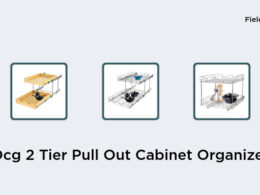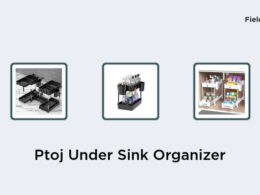Understanding the Role of a Property Manager
A property manager or property supervisor is an individual or a company that is responsible for ensuring that residential, commercial, and industrial properties are well-maintained, safe, and profitable for the owner. They are entrusted with managing the day-to-day operations of a property, which includes handling tenant relations, rental collections, maintenance and repairs, marketing, and bookkeeping. The main goal of a property manager is to manage and maximize the overall value of a property for the owner, while ensuring that the tenants are satisfied with their living or working conditions. Successful property managers have a deep understanding of real estate laws, regulations, and local market conditions, as well as excellent communication, management, and problem-solving skills.The Key Responsibilities of a Property Supervisor
The role of a property manager involves a wide range of responsibilities that are essential for the smooth operation of a property. Some of the key responsibilities of a property supervisor include:- Marketing and advertising vacant properties
- Screening and selecting tenants
- Managing tenant relations and addressing their concerns
- Collecting rent and managing the property’s finances
- Coordinating maintenance and repairs
- Ensuring compliance with applicable laws and regulations
Property Management: A Critical Role in Real Estate
Property management is a critical role in real estate, as it can greatly affect the success and profitability of an investment property. A knowledgeable and skilled property manager can help the property owner to maximize their returns and minimize expenses and risks, while also providing a high level of service to the tenants. By handling the day-to-day operations of a property, a property manager can free up the owner’s time and energy, allowing them to focus on other aspects of their real estate business. Furthermore, a professional property manager can help to mitigate legal risks and liability issues, ensuring that the property is compliant with all applicable laws and regulations.The Importance of Hiring a Skilled Property Manager
Hiring the right property manager is crucial for the success of any property investment. A skilled and experienced property manager can help to:- Maximize the property’s profitability through efficient management and marketing
- Reduce maintenance and repair costs through proactive maintenance and vendor management
- Improve tenant retention through effective communication and dispute resolution
- Ensure compliance with legal and regulatory requirements, minimizing legal risks and liability
Property Management versus Property Supervision: What’s the Difference?
The terms property management and property supervision are often used interchangeably, but there is a subtle difference between the two. While property management refers to the overall responsibility for the day-to-day operations and financial performance of a property, property supervision refers to a more limited role that focuses primarily on maintenance and repair issues. In general, property supervision is a subset of property management, and may be performed by a separate maintenance or engineering team. Property managers, on the other hand, are responsible for the broader aspects of property management, including tenant relations, marketing, and financial management.Qualities to Look for in a Property Manager
When selecting a property manager, there are several key qualities to look for, including:- Experience and expertise in real estate management
- Effective communication and interpersonal skills
- Strong organizational and administrative abilities
- Financial and budgeting skills
- Problem-solving and decision-making abilities
- Attention to detail and commitment to excellence
The Benefits of Hiring a Property Manager for Investors
Hiring a property manager can provide numerous benefits for real estate investors, including:- Maximizing the property’s profitability and cash flow
- Reducing stress and risk associated with property management
- Freeing up time and resources to focus on other aspects of the real estate business
- Increasing property value through effective management and maintenance
- Ensuring compliance with legal and regulatory requirements, minimizing liability and legal risks
How to Choose the Right Property Manager for Your Real Estate Business
When choosing a property manager, it is important to conduct a thorough screening and selection process to ensure that you are hiring the right person for the job. Some tips for selecting the right property manager include:- Researching and comparing multiple property managers
- Interviewing candidates and asking for references
- Reviewing their experience and credentials
- Assessing their communication and management skills
- Exploring their approach to marketing, maintenance, and tenant relations
- Reviewing their fees and contract terms






















